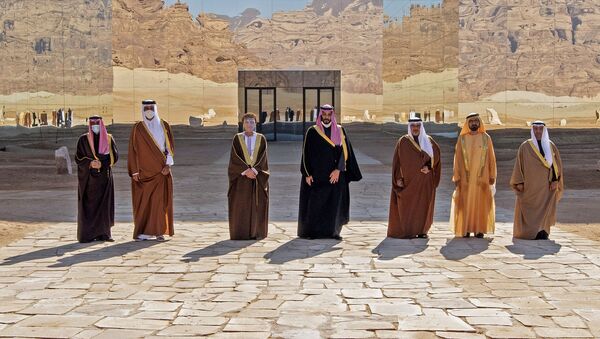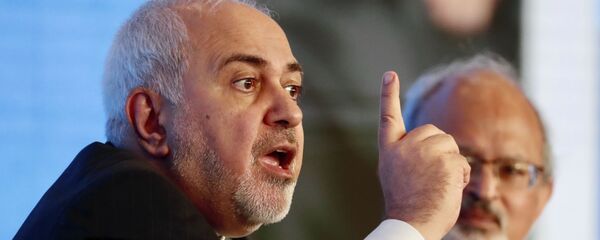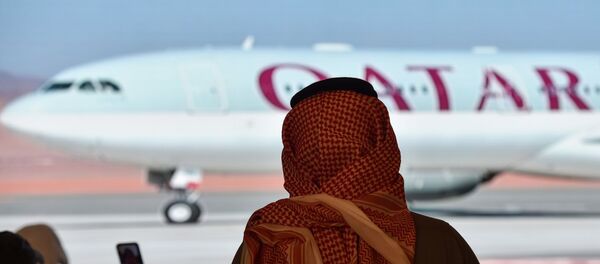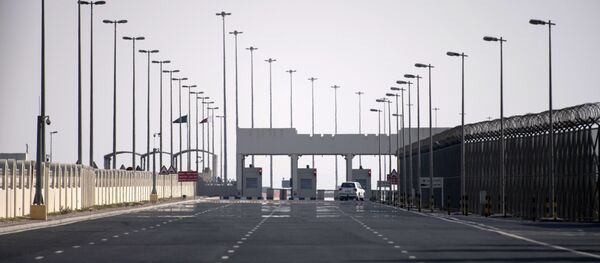Leaders of all Gulf states met on Tuesday in the Saudi capital Riyadh for the first time in almost four years, effectively ending their feud with Qatar and lifting their boycott of the tiny, prosperous Arab nation.
Later on, it was announced that Egypt has also signed its agreement with Doha, putting an end to the crisis between the states.
Divided We Stand
In 2017, Saudi Arabia, Egypt, the United Arab Emirates and Bahrain severed their relations with Doha, cutting off trade and business ties and shutting down borders and air travel between the countries.
That boycott has had a negative impact on the gas-rich nation. Entire families have been split, relatives were not allowed to visit each other, the international standing of Qatar has been damaged, and its economy shrank, with the rating agency Standard and Poor's giving it a negative outlook in 2017.
Now, however, after the sides decided to put differences aside, past disputes seem to be over and Rabbi Marc Schneier, a man considered a close friend of several Gulf monarchs, says the Saudi decision was a "win-win situation for the region and the world".
"Qatar is very excited to be part of that reconciliation but it is not only them. All sides wanted that to happen."
United Front
The timing of that reconciliation is not accidental. It comes just weeks before US President-elect Joe Biden takes office on 20 January and Schneier is certain that the decision to resolve the dispute is aimed at pleasing the new administration in Washington.
"Saudi Arabia would like to have a good start with Biden and they also want to demonstrate that they are the leaders of the Gulf Cooperation Council (GCC), and to do so, they need these kind of initiatives."
However, establishing warm relations with the new boss in Washington was not Riyadh's only concern and the reconciliation was also aimed at presenting a united front in the face of challenges in the region, particularly Iran.
Although Tehran has repeatedly said that its nuclear programme was serving peaceful purposes only, Riyadh as well as other regional players including Israel have insisted that Iran was developing weapons of mass destruction that could be used against them.
With the GCC now forming a united bloc, the Saudis are hopeful that that axis will also be converted into a common front, which will also include Qatar, that has maintained fairly friendly relations with the Islamic Republic.
"Of course, each state will bring its own relations with Iran to the table but the overall message is clear. The GCC is one and it will act as one," said Schneier.
More Pacts with Israel?
Another question that begs to be answered is whether the GCC will "act as one" when it comes to the Palestinian issue and the normalisation process with Israel.
In September, two member states of the Gulf Cooperation Council - the UAE and Bahrain - signed peace pacts with Israel, and reports suggest that more players in the region will soon follow in their footsteps.
Now that the boycott is over, it could unlock "a domino effect" leading to a number of additional normalisation agreements with Israel, but Schneier is certain that even if such rapprochement does occur, it will not be at the expense of the Palestinians.
"The Saudis and Qataris have already said that the plight of the Palestinians must be addressed if Israel wanted to move ahead with normalisation agreements. And President-elect Biden is supportive of this stance because his administration is on the same page with those Gulf states when it comes to the Palestinian issue."







